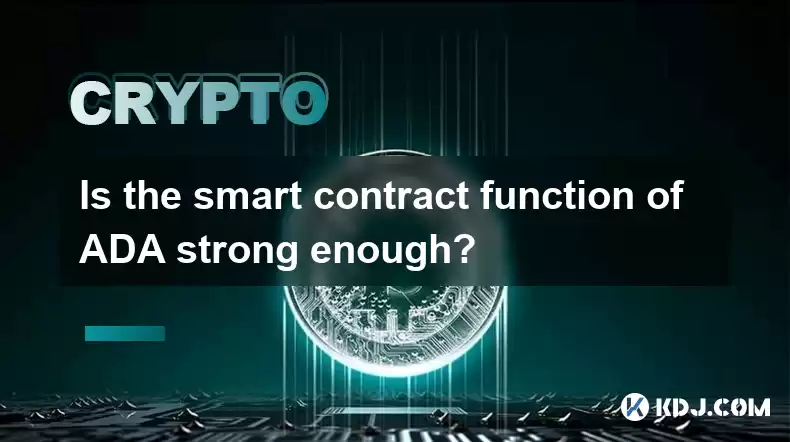-
 Bitcoin
Bitcoin $120200
1.20% -
 Ethereum
Ethereum $4612
9.01% -
 XRP
XRP $3.274
4.27% -
 Tether USDt
Tether USDt $0.9999
-0.02% -
 BNB
BNB $835.0
3.28% -
 Solana
Solana $192.6
10.00% -
 USDC
USDC $0.9998
0.00% -
 Dogecoin
Dogecoin $0.2362
5.94% -
 TRON
TRON $0.3522
1.87% -
 Cardano
Cardano $0.8418
8.70% -
 Chainlink
Chainlink $23.47
10.76% -
 Hyperliquid
Hyperliquid $45.03
4.26% -
 Stellar
Stellar $0.4503
4.40% -
 Sui
Sui $3.887
6.24% -
 Bitcoin Cash
Bitcoin Cash $618.8
6.66% -
 Hedera
Hedera $0.2609
5.53% -
 Ethena USDe
Ethena USDe $1.000
-0.02% -
 Avalanche
Avalanche $24.68
7.86% -
 Litecoin
Litecoin $130.9
8.67% -
 Toncoin
Toncoin $3.505
3.79% -
 UNUS SED LEO
UNUS SED LEO $9.117
1.48% -
 Shiba Inu
Shiba Inu $0.00001356
4.56% -
 Uniswap
Uniswap $11.59
4.75% -
 Polkadot
Polkadot $4.149
7.26% -
 Dai
Dai $0.9998
-0.04% -
 Cronos
Cronos $0.1646
-1.10% -
 Ethena
Ethena $0.8028
0.57% -
 Pepe
Pepe $0.00001218
8.33% -
 Bitget Token
Bitget Token $4.466
1.62% -
 Aave
Aave $322.4
9.58%
Is the smart contract function of ADA strong enough?
Cardano's Plutus smart contracts offer robust, formally verified security, but its ecosystem's maturity lags behind Ethereum's, impacting development speed and dApp availability. Scalability improvements are crucial for future growth.
Mar 06, 2025 at 05:01 pm

Key Points:
- Cardano's smart contract functionality, implemented via Plutus, offers a robust, secure, and formally verified platform. However, its maturity compared to Ethereum's is a key factor to consider.
- Plutus's focus on formal verification contributes to enhanced security but may limit the speed of development and deployment compared to less formally verified platforms.
- The ADA ecosystem is actively developing its decentralized application (dApp) landscape, although it's still smaller than Ethereum's. The ongoing development and adoption of Plutus will be crucial for its long-term success.
- Scalability is a key area of focus for Cardano, and improvements in this area will directly impact the effectiveness of its smart contract functionality.
Is the smart contract function of ADA strong enough?
Cardano's smart contract capability, built using the Plutus platform, represents a significant step forward in blockchain technology. Plutus leverages functional programming, a paradigm that emphasizes immutability and predictability, leading to enhanced security. This differs from Ethereum's Solidity, which uses an object-oriented approach. The inherent advantages of functional programming in Plutus contribute to a more robust and verifiable smart contract environment. However, the strength of a smart contract platform isn't solely determined by its underlying programming language.
The maturity of the ecosystem surrounding Cardano's smart contracts is a crucial consideration. While Plutus provides a solid foundation, the number of deployed dApps and the overall developer community are still smaller compared to Ethereum. This signifies a potential limitation in the immediate availability of readily available tools, libraries, and community support. The growth of the developer community and the expansion of the dApp ecosystem are essential for the long-term strength of Cardano's smart contract functionality.
Formal verification is a key aspect of Plutus's design. This process involves mathematically proving the correctness of the smart contract code, minimizing the risk of unexpected behavior or vulnerabilities. While this approach enhances security, it can also increase development complexity and slow down the deployment of new contracts. Developers need to navigate a steeper learning curve compared to platforms with less rigorous verification processes. The trade-off between security and development speed is a critical consideration when evaluating Plutus.
Scalability remains a challenge for many blockchain platforms, and Cardano is no exception. The ability to handle a large volume of transactions efficiently is crucial for the widespread adoption of smart contracts. Cardano's development team is actively working on improving scalability through various upgrades and enhancements. The success of these efforts will significantly impact the overall strength and usability of its smart contract platform. Increased transaction throughput and reduced costs are crucial for attracting a broader range of developers and users.
The security model employed by Plutus is designed to minimize vulnerabilities. However, like any software, smart contracts are susceptible to bugs and exploits. Regular audits and security reviews are vital to ensure the long-term integrity of the platform. The Cardano community actively participates in the security assessment process, but it's important to remember that no system is entirely invulnerable. Continuous vigilance and improvement are necessary to maintain a high level of security.
The ease of use of a smart contract platform is another factor influencing its strength. Plutus aims to provide a developer-friendly environment, but the learning curve for functional programming can be steep. The availability of user-friendly tools and resources is essential to attract a larger pool of developers. The growth of educational materials and community support will directly influence the ease of use and accessibility of Plutus.
The cost of deploying and interacting with smart contracts on Cardano is another important consideration. Transaction fees, along with the computational resources required to execute contracts, can impact the overall usability and accessibility of the platform. Efforts to optimize transaction costs and resource consumption are crucial for making Cardano's smart contract platform more competitive and attractive.
The interoperability of Cardano's smart contract platform with other blockchains is a critical aspect of its long-term success. The ability to seamlessly interact with other ecosystems can expand the possibilities and reach of dApps built on Cardano. Increased interoperability can lead to greater innovation and collaboration within the broader cryptocurrency landscape. Ongoing development in this area is vital for strengthening Cardano's smart contract ecosystem.
The legal and regulatory landscape surrounding smart contracts is constantly evolving. The legal clarity and regulatory frameworks surrounding Cardano's smart contract functionality will significantly impact its adoption and usage. Navigating the complex legal and regulatory environment is crucial for ensuring the sustainable growth of the platform.
Cardano's approach to smart contract development emphasizes peer review and community involvement. This collaborative approach fosters a culture of transparency and accountability, contributing to the overall robustness and security of the platform. The active involvement of the community in code review and security audits strengthens the platform's resilience against potential vulnerabilities.
The future development roadmap of Cardano's smart contract capabilities includes further enhancements to scalability, performance, and developer tools. Continuous improvements in these areas are essential to keep the platform competitive and attractive to developers and users. Ongoing updates and upgrades are crucial for ensuring that Cardano's smart contract functionality remains at the forefront of blockchain technology.
Frequently Asked Questions:
Q: How does Cardano's smart contract functionality compare to Ethereum's?
A: While both platforms support smart contracts, they differ significantly in their underlying programming languages and approaches to security. Ethereum utilizes Solidity, an object-oriented language, while Cardano uses Plutus, based on functional programming. Plutus prioritizes formal verification, leading to potentially higher security but potentially slower development. Ethereum boasts a far larger and more mature ecosystem.
Q: What are the potential risks associated with using Cardano's smart contracts?
A: Despite Plutus's focus on security, risks still exist. Bugs in smart contract code, vulnerabilities in the platform itself, and unforeseen interactions between contracts are all potential concerns. Regular audits and security reviews are crucial to mitigate these risks. The relatively young nature of the ecosystem also presents some inherent risks.
Q: What programming language is used for Cardano smart contracts?
A: Cardano's smart contracts are primarily written in Plutus, a functional programming language designed specifically for the Cardano blockchain. This choice emphasizes security and verifiability.
Q: Is Cardano's smart contract platform suitable for all types of applications?
A: While Cardano's smart contract platform is versatile, its suitability depends on the specific application's requirements. The platform's strengths lie in security and verifiability, making it suitable for applications demanding high levels of trust and reliability. However, its relative immaturity compared to other platforms might make it less suitable for applications requiring extensive third-party libraries or a large developer community.
Disclaimer:info@kdj.com
The information provided is not trading advice. kdj.com does not assume any responsibility for any investments made based on the information provided in this article. Cryptocurrencies are highly volatile and it is highly recommended that you invest with caution after thorough research!
If you believe that the content used on this website infringes your copyright, please contact us immediately (info@kdj.com) and we will delete it promptly.
- Unich's OTC Exchange: Surging with $1.2B Volume – What's the Hype?
- 2025-08-13 02:50:11
- MoonBull's Explosive Moves: Your Crypto Whitelist Ticket to Ride!
- 2025-08-13 02:30:11
- MAGACOIN Finance: Don't Miss the Presale Bonus!
- 2025-08-13 02:30:11
- Trump's Crypto Kingdom: $2.4 Billion and Counting
- 2025-08-13 02:50:11
- Solana, LSTs, and SEC Approval: A New Dawn for Crypto?
- 2025-08-13 02:55:12
- Bitcoin's Profit Surge: Unpacking the BTC Value Boom
- 2025-08-13 02:55:12
Related knowledge

How to purchase Aragon (ANT)?
Aug 09,2025 at 11:56pm
Understanding Aragon (ANT) and Its PurposeAragon (ANT) is a decentralized governance token that powers the Aragon Network, a platform built on the Eth...

Where to trade Band Protocol (BAND)?
Aug 10,2025 at 11:36pm
Understanding the Role of Private Keys in Cryptocurrency WalletsIn the world of cryptocurrency, a private key is one of the most critical components o...

What is the most secure way to buy Ocean Protocol (OCEAN)?
Aug 10,2025 at 01:01pm
Understanding Ocean Protocol (OCEAN) and Its EcosystemOcean Protocol (OCEAN) is a decentralized data exchange platform built on blockchain technology,...

How to invest in Kyber Network Crystal v2 (KNC)?
Aug 12,2025 at 05:21pm
Understanding Kyber Network Crystal v2 (KNC)Kyber Network is a decentralized liquidity hub built on the Ethereum blockchain that enables instant token...

Where can I buy UMA (UMA)?
Aug 07,2025 at 06:42pm
Understanding UMA and Its Role in Decentralized FinanceUMA (Universal Market Access) is an Ethereum-based decentralized finance (DeFi) protocol design...

What exchanges offer Gnosis (GNO)?
Aug 12,2025 at 12:42pm
Overview of Gnosis (GNO) and Its Role in the Crypto EcosystemGnosis (GNO) is a decentralized prediction market platform built on the Ethereum blockcha...

How to purchase Aragon (ANT)?
Aug 09,2025 at 11:56pm
Understanding Aragon (ANT) and Its PurposeAragon (ANT) is a decentralized governance token that powers the Aragon Network, a platform built on the Eth...

Where to trade Band Protocol (BAND)?
Aug 10,2025 at 11:36pm
Understanding the Role of Private Keys in Cryptocurrency WalletsIn the world of cryptocurrency, a private key is one of the most critical components o...

What is the most secure way to buy Ocean Protocol (OCEAN)?
Aug 10,2025 at 01:01pm
Understanding Ocean Protocol (OCEAN) and Its EcosystemOcean Protocol (OCEAN) is a decentralized data exchange platform built on blockchain technology,...

How to invest in Kyber Network Crystal v2 (KNC)?
Aug 12,2025 at 05:21pm
Understanding Kyber Network Crystal v2 (KNC)Kyber Network is a decentralized liquidity hub built on the Ethereum blockchain that enables instant token...

Where can I buy UMA (UMA)?
Aug 07,2025 at 06:42pm
Understanding UMA and Its Role in Decentralized FinanceUMA (Universal Market Access) is an Ethereum-based decentralized finance (DeFi) protocol design...

What exchanges offer Gnosis (GNO)?
Aug 12,2025 at 12:42pm
Overview of Gnosis (GNO) and Its Role in the Crypto EcosystemGnosis (GNO) is a decentralized prediction market platform built on the Ethereum blockcha...
See all articles

























































































